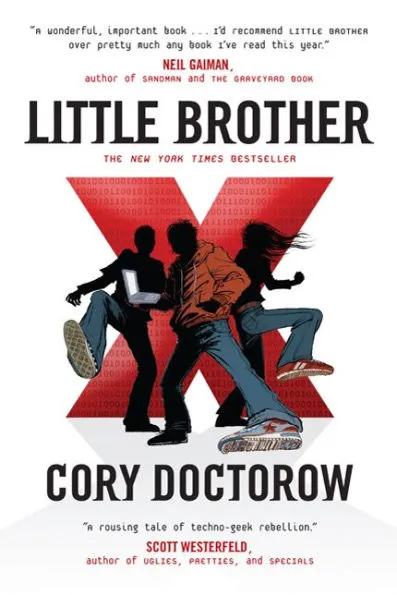When did the word “legacy” become something negative? Weren’t people at one time concerned about the legacy they left behind? Wasn’t it important to leave a well deserved and regarded reputation (And maybe a little cash) for your loved ones? Did the word become something to sneer at when it was used to make sure proto-frat boys got accepted into the house their dads once belonged to?
If I remember correctly, the first time I heard it used disparagingly in a business setting was at a roundtable meeting where a supplier demonstrated their “new and improved” database software. “We really wanted to get rid out our legacy systems,” the presenter said, holding up air quote fingers when he said legacy. “It was all so old and clunky. But when we realized we couldn’t just turn it off, we folded it into the new systems we’re showing you now. It’s way better!”
When I returned to the office and logged into the “new and improved” system, I found something even more complex. The only word I could think of to describe it was “kludge.” The old “legacy” system was kind of trash, but it at least provided the information I needed to perform my work. The new system? It kind of worked too, but it was also trash. It was just as balky and annoying as its predecessor. But the design was prettier.
The news last week was full of articles about the spinning ball of iron and nickel at the earth’s core. Not surprisingly, the first I heard of it was a breathless news cast on the radio and my initial thought was, “Well, here comes a real apocalypse!” Of course that’s not the case. We’ll survive and we’ll hardly notice something that’s been going on for a very long time.
It all reminded me of how when the digital age became ubiquitous, some magazine publishers finished out their life cycles. Because that’s what happens. Others became “legacy” publishers who apparently have now “adapted” to this shiny new era.
Eventually, something else new will arise and the rookie publishers of this new era will still be standing. No doubt, the news writers of that new period sometime in the future will refer to them as “legacies.”
First up: Legacy publishers have “turned” the corner
Author Karlene Lukovitz, who has covered the magazine world throughout the upheavals of the past decade aptly points out the twists and turns that the more storied publishers of the past few decades have undertaken to remain in business.
As she notes, the uproar that occurred when Condé Nast CEO Roger Lynch said that the company was no longer a “magazine” company, was most likely performative and aimed at very specific audiences.
In my career, I’ve seen a lot of companies fail. Sometimes it’s because management made really terrible choices. Or it’s because the audience dried up and wasn’t interested anymore. Frequently, it’s simply a lack of resources, bad luck or bad timing.
However, the issue has never been that the general desire for magazines and the content they provide has gone away. Access to that content has changed and the demand for audiences attention now stretched very thin.
If you have resources, some luck, and decent guidance, you’ll still be standing.
Next: Newsrooms reckon with AI following CNET saga
Axios reports that CNET and sister company Bankrate have put a pause on using on its experiment with AI tools to generate explainer and list articles.
You do have to wonder, as AI becomes more ubiquitous, how news sites will decide to draw the line on where and what AI will be allowed to do.
Personally, I think there’s a lot about AI that could be helpful: Document research, scheduling, the development of reports. I am sure that as it becomes more sophisticated there will be fan boys out there that will say it can do almost anything a human can do.
Fair point. So then, what are humans supposed to do?
And, do you trust the masters of the universe to do the right thing by all us lowly humans?
#JustAsking
Check it out: Cory Doctorow on how platforms die
If you’re a fan of science fiction, you may be familiar with the works of Cory Doctorow, the author of Little Brother.
I chose this for two primary reasons:
First, publishers are have invested in social media. So how these platforms treat your customers (ahem, readers) is pretty important. Participation there is a reflection on your business practices and what you think about your customers.
Secondly, it’s something to think about with regards to your supply chain. Magazine wholesalers sit between publishers and the retailers who sell their products. Printers sit between the raw materials that make a magazine and what the publisher wants that magazine to look like (presuming there’s a print version).
In all of these cases, we’re looking at consolidated businesses. Does Facebook or Instagram really have competitors? How much of the printing world do the two major magazine printers control? Can you name all of the major magazine wholesalers in the US?
It’s pretty obvious, now that we’re here, that we may want to reflect back on how got here. But it is even more important to ask the next question: Where do we go from here?
In less surprising news…Dotdash Meredith lays of 7% of their staff
So…how’s all that leveraging going?
To be fair, right now no media company is immune to all the twists and turns in the economy. Moreover, all publishers are in a pretty big fight (whether they acknowledge it or not) for the attention of their readers (customers, consumers).
But 274 people are about to lose their jobs and the ones I am thinking of are the long time Meredith employees. I’ve been there and know what it feels like. It hurts like hell and you may feel a bit abused and insulted.
Head up. Chest up. Core tight. You’ll get through it.
And finally: 10 Magazine to launch US version this fall
This indie UK fashion and style publication has already launched an Australian edition and now plans to launch a biannual version here in the US this coming September.
The editor for the US edition will be Dora Fung, a fashion consultant who’s also worked for other fashion titles such as Vogue China and New York Magazine.
Clearly, I’m not the target demo for these titles, but honestly, I just love leafing through UK and Australian indie titles. This will be a very welcome addition to the magazine rack.
Your Moment of Magazine Zen…
I hope you enjoyed this newsletter. Please give it a boost by clicking “Like” and then subscribe. You’ll get a brand new release in your email in-box every Tuesday (Or sometimes Wednesday if things get a little crazy around here). Sometimes I‘ll even have some “bonus” content for you.
If you’ve got a question or comment, please drop me a line. You can always reach me at joe.berger@newsstandpros.com.
Looking for me on the social sites?
It’s actually kind of a nice place and you no longer need an invite. So if all the squawking on the bird site makes you dizzy, check out Post.News. You can find me here on this new app.
Yes, I’m still on Twitter. You can find me here. For now.
My Instagram link is here.
Every now and then I put on a suit and tie and even comb my hair. Here’s my LinkedIn profile.
May the gods of fashion be kind to you on your next Teams, Google or Zoom meeting. Don’t forget to change out of your pajama bottoms if you need to stand up.








